Academic Staff
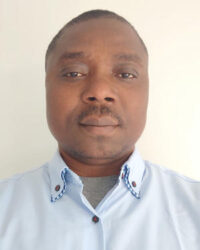
Dr Agbaeze Ejem
Lecturer in Information Systems
Agbaeze's research centres on the design of consensus algorithms, with particular emphasis on developing protocols that are scalable, fault-tolerant, and efficient for distributed systems. He is also actively involved in modelling and simulation, which he uses to analyse system behaviour under various conditions. A core part of his work includes performance evaluation, where he rigorously tests and compares the reliability, throughput, and latency of different consensus strategies aiming to improve their suitability for real-world applications such as blockchain networks, distributed databases, and cloud computing environments.
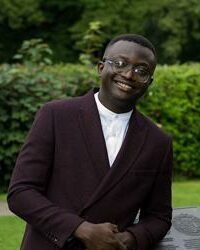
Akinola Olumide Siyanbola
Lecturer in Computer Science
Akinola’s research is focused on using semantic-based techniques to model and describe security-related features of a computer network. This includes using ontology and advanced reasoning methods to characterise attack scenarios of how an attacker may leverage a network vulnerability in a complete system compromise.
Other research interest includes Cyber threat hunting, Penetration Testing, Threat Modelling, Attack Modelling, API Security, Identity and Access Management Systems and Progressive Web Applications.
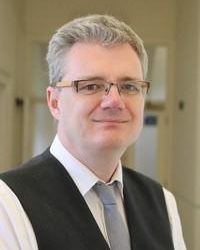
Andrew Robinson
Senior Lecturer in Creative Computing
Andrew has worked in the computer graphics industry for over 25 years, for a wide range of blue-chip clients.
Research interests:
- Experimental film media
- Experimental sound design and composition
- Drones and their impact on society

Dr Andrew Tomlinson
Senior Lecturer
Andrew has worked on computing projects for over twenty years. His work has included information systems development, systems analysis, IT strategy planning, data science and research. He has worked on systems for healthcare and medical diagnosis, banking, transport, cybersecurity, DNA analysis, and telecoms. Andrew’s PhD looked at detecting cyberattacks in vehicles – a potential huge problem in future driverless cars.

Dr Chris Bowers
Research Group Lead, Principal Lecturer in Computing
Chris is a specialist in Intelligent Interactive Systems. In other words, he looks at how we can build intelligent systems that humans can work with effectively. His work bridges the two domains of Human-Computer Interaction and Computational Intelligence, but he retains a particular focus on Mobile and Ubiquitous systems.
Chris has applied his expertise across a wide variety of domains having worked on several successful international projects across the engineering, media, culture and heritage sectors.

Dr Eya Meddeb
Associate Lecturer in Computing
Eya’s main research interests are in Causal Inference, Machine/deep learning, Artificial intelligence, Data mining, Systems modelling, System Dynamics, Employee turnover, and Human Resources Management.
Her PhD research concerns examining the practicalities of combining machine learning and causal inference, specifically the logic of system dynamics by Dr John Sterman to turnover prediction, identifying the key indicators/variables and testing the outcome of different scenarios to improve decision making.
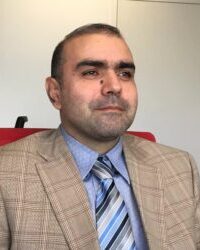
Dr Nader Sohrabi Safa
Senior Lecturer in Cyber Security
Dr Nader Sohrabi Safa is a Senior Lecturer in Cyber Security at Department of Computing, Worcester Business School. Nader has five years Postdoctoral experience in cyber security in Nelson Mandela Metropolitan University in South Africa, and Cyber Security Centre, WMG, University of Warwick. He was a lecturer in Coventry University before joining University of Wolverhampton. His academic experience and 15 years industry experience in the field of Computer Science and Cyber Security have provided a strong background for his work. He has participated in several large-scale projects such as PETRAS, Data Protection in Industry, Human Aspects of Information Security, and so on. He is member of editorial board and reviewer in several well-known journals in the domain of cyber security. He also is PC member and organiser of several international conferences every year.

Peter Clews
Lecturer in Web Development in Computing
Peter has a wide variety of industry experience, including three years in database administration and data analysis for Mercedes-Benz dealerships. He has a BSc Computing with Business from the University of Worcester, where he was awarded the Academic Achievement Scholarship for his first-year results. He has an MSc in Business Intelligence from Birmingham City University (with distinction), where the topic of his dissertation was a review of rudimentary methods of sarcasm classification in tweets.
Research interests:
• Database, data warehouse and data lake architectures.
• Semi-structured data.
• Open and big data.
• Data mining.
• Business intelligence.
• Text mining and sentiment analysis.
• Autism in higher education.

Richard Wilkinson
Head of Department of Computing
Richard’s current fields of research have particularly drawn him to a focus and work around Teaching and Learning in Higher Education along with Big Data, Data Analytics and Social Media Engagement Analysis with a particular interest around Learning Analytics.
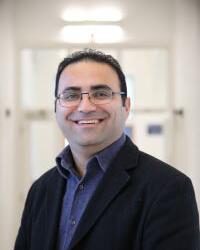
Dr Sajad Rezaei
Senior Lecturer in Digital Marketing
Dr Sajad Rezaei is a Senior Lecturer specialising in digital business, marketing, data analytics, and business innovation. His work focuses on the integration of technology, analytics, and customer insight - exploring how emerging digital tools are reshaping business models, productivity, and customer experiences.
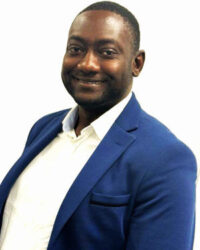
Dr Vanye Zira Vanduhe
Lecturer in Cyber Security
Vanye is an accomplished researcher specialising in Management Information Systems (MIS), educational technology, and cyber security, particularly, social engineering and edge security networks. His research outlines a multifaceted agenda centered on leveraging digital innovation, intelligent systems, and cybersecurity (Behavioural Cybersecurity and Trustworthiness Model) to transform education, healthcare, business, and sustainability. His work integrates Artificial Intelligence, big data, emotional engineering, human-computer interaction, gamification, and persuasive technology, aiming to achieve: Agile health and social care models, Behavioural change, Preventive medicine (MedTech), Technology enhanced learning and Digital Sustainability.
Research Students
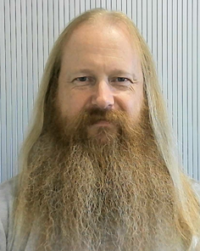
Bradley Carwardine
Lecturer in Computer Science
Bradley has extensive industry experience in many technology sectors. He has worked in commercial programming, networking infrastructure installation.
Bradley has a MSc in Advanced Computer Science from Birmingham City University, where he was awarded a Distinction grade. The title of his dissertation was “A Conversational Agent enabled IDE for Novice Programmers”. Within his MSc research the concept of using a Conversational Agent, (or ‘A.I. chatbot’), to assist novice programmers to edit code was piloted. The functional prototype utilised a Voice User Interface, (V.U.I.), that enabled the user to issue spoken instructions to the system. The users were able to phrase instructions in natural language instead of predetermined commands.
This area of research is being further developed at PhD level with Worcester University. Bradley’s PhD research is focused on whether a VUI enabled Conversational Agent can assist novice programmers to debug code. The work aims to determine if A.I. assisted ‘coaching’ is perceived as a benefit to users when learning to debug code.

Ikjot Kaur
PhD student
Ikjot Kaur is exploring the potential for AI to improve uptake of healthcare screening.
Associate Members
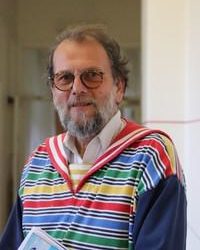
Dr Colin B Price
Associate Lecturer in Computing
Research interests:
Design and Development of Educational Immersive Environments using 3D Digital Technology
Physics Simulations using 3D Digital Technology
Teaching Primary School Children to code in Java
Story-Writing-Coding for Primary and Secondary Schools
Technology to help Special Needs students read and write
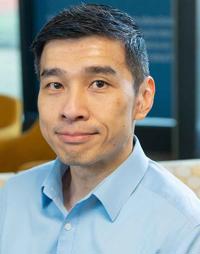
Dr Felix Why
Senior Lecturer , School of Psychology
Felix’s research interests include factors (e.g., personality, implicit cues, nudge) that predict and explain health and health behaviours and have also published research on behavioural change interventions. He has collaborated with non-academic partners within the areas of occupational health and personnel selection.
External Members

Professor Kerry Gaskin
Professor of Congenital Cardiac Nursing, Birmingham City University
Kerry is a mixed-methods researcher with a particular interest in congenital heart disease nursing. With parents and colleagues, Kerry developed a parental early warning tool called the Congenital Heart Assessment Tool (CHAT), empowering parents to escalate worries and concerns by identifying signs of deterioration in their infant and making prompt contact with the appropriate health care professionals. Kerry is also interested in transforming lives of children and young people with CHD and their families, reducing health inequalities, and improving patient safety through knowledge mobilisation.
